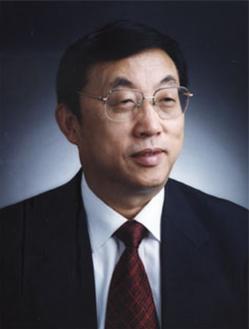IEEE
ICMA2006 Conference
Plenary
Talk
A
hybrid intelligent optimal control method for the whole production line and
applications
Tianyou
Chai,
Ph.D.
Director
of
National
Research
Center
for Metallurgical Automation Technology,
Professor
Department
of Automatic Control
Northeastern
University,
P.R.China

Abstract:
With
ever increased needs for an improved product quality, production efficiency,
and cost in today乫s globalized world market,
advanced process control should not only realize the accuracy of each control
loops, but also has the ability to achieve an optimization control of global
production indices that are closely related to the improved product quality,
enhanced production efficiency and reduced consumption. As a result, the
optimal control for the global production indices has attracted an increased
attention of various process industries. The optimal control of the global
production indices requires an optimal combination of the production indices,
technical indices and the operation of each control loops. In this paper, a
hybrid intelligent control strategy is proposed for process industries. This
new strategy consists of three control layers, namely the intelligent
optimization of the global production indices, the intelligent optimal control
of the technical indices and the intelligent process control,.
The intelligent optimization of the global production indices is composed of
the setting model of the technical indices, the predictor of the global
production indices, the feedback and prediction analysis adjustment models. The
intelligent optimal control of the technique indices consists of the
setpoints model of control loops, the prediction of technical
indices, the feedback and feedfoword
regulators. The intelligent process control is then composed of normal
decoupled PID controllers, decoupled nonlinear PID controllers with a neural
network feedforword compersator
for un-modeled dynamics and a switching mechanism. Such a control structure can
automatically transfer the global production indices into a required number of
setpoints for each control loops.
Moreover, when the system is subjected to either operating
point changes or unexpected disturbances, setpoints
of the control loops can be adaptively updated and the outputs of the control
loops are made to follow the updated setpoints so
that the global production indices can be controlled into their targeted ranges
to realize the optimization control of the global production indices. The
proposed method has been successfully applied to the largest hematite minerals
processing factory in
China
, where remarkable social and economic benefits have been achieved.
Such an industrial application has successfully demonstrated the performance of
the proposed optimal control method which will therefore has a high potential
for further and much wider applications.
Tianyou
Chai
received the PhD degree from
Northeastern
University
, P.R.China in 1985. Since 1985, he has
been with
Northeastern
University
where he became professor in 1988. He is Member of Chinese Academy of
Engineering. He has been director of
National
Research
Center
for Metallurgical Automation Technology since 1997. He served as Member of
Technical Board of IFAC and Chairman of Coordinating Committee on Manufacturing
and Instrumentation of IFAC from 1996 to 1999. He has been serving as Deputy
Director of Experts Committee of Advanced Manufacturing and Automation in
High-tech Research and Development Program of China from 2001 to 2006.
His
research interests include adaptive control, intelligent decoupling control,
and integrated automation systems. He has published more than two hundred
papers in international journals and international conferences. He developed
several integrated automation systems, which have been successfully applied in
the process industries in
China
, such as metallurgy industry and electric power industry.
He
was the recipient of two prizes of National Science and Technology Progress
Award in 1999 and again in 2001, He was awarded the title of Ho Leung Ho Lee
Foundation Technological Science Prize in 2002 and Science and Technology Honor
Prize of Liaoning Province in 2003.